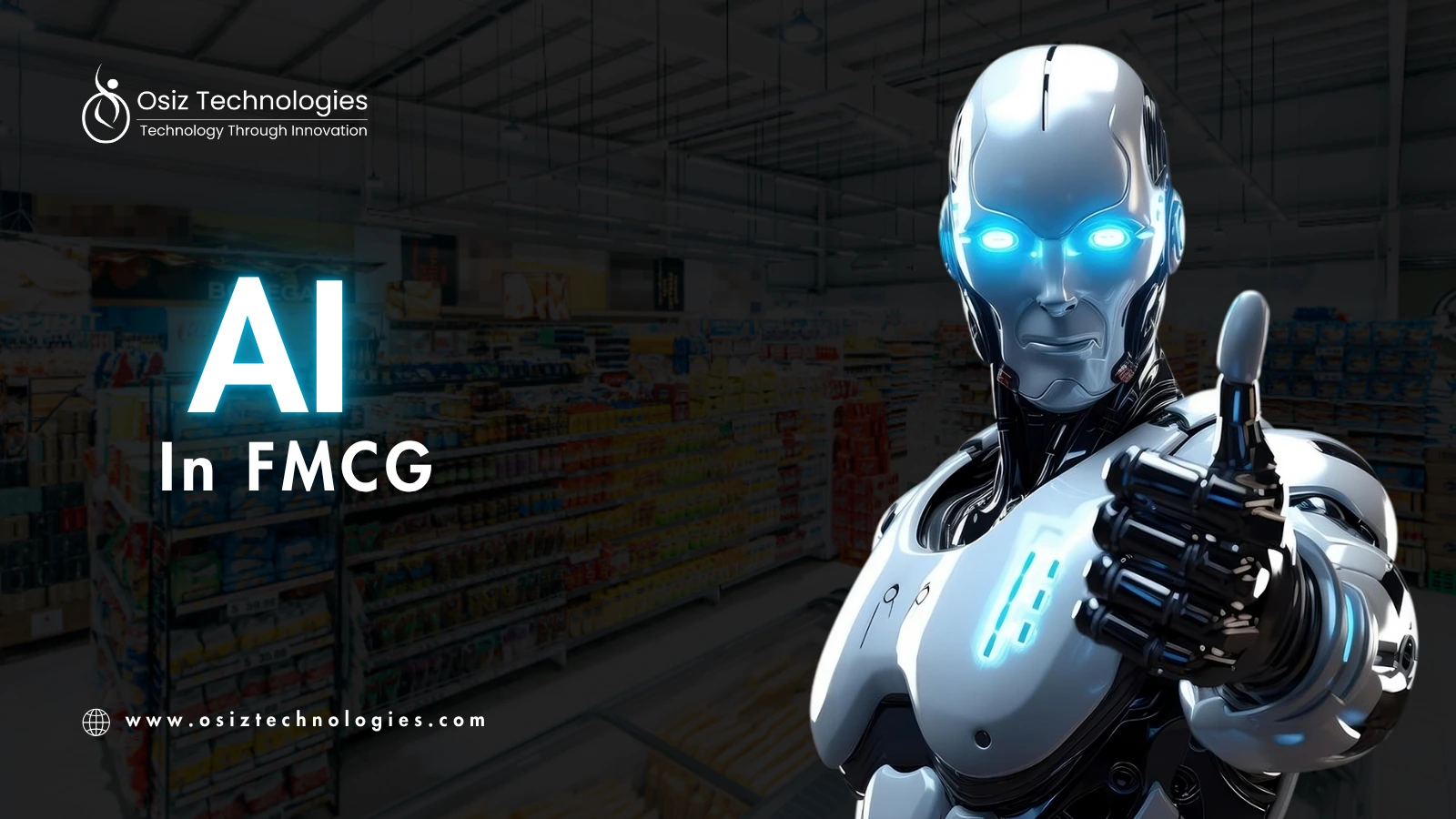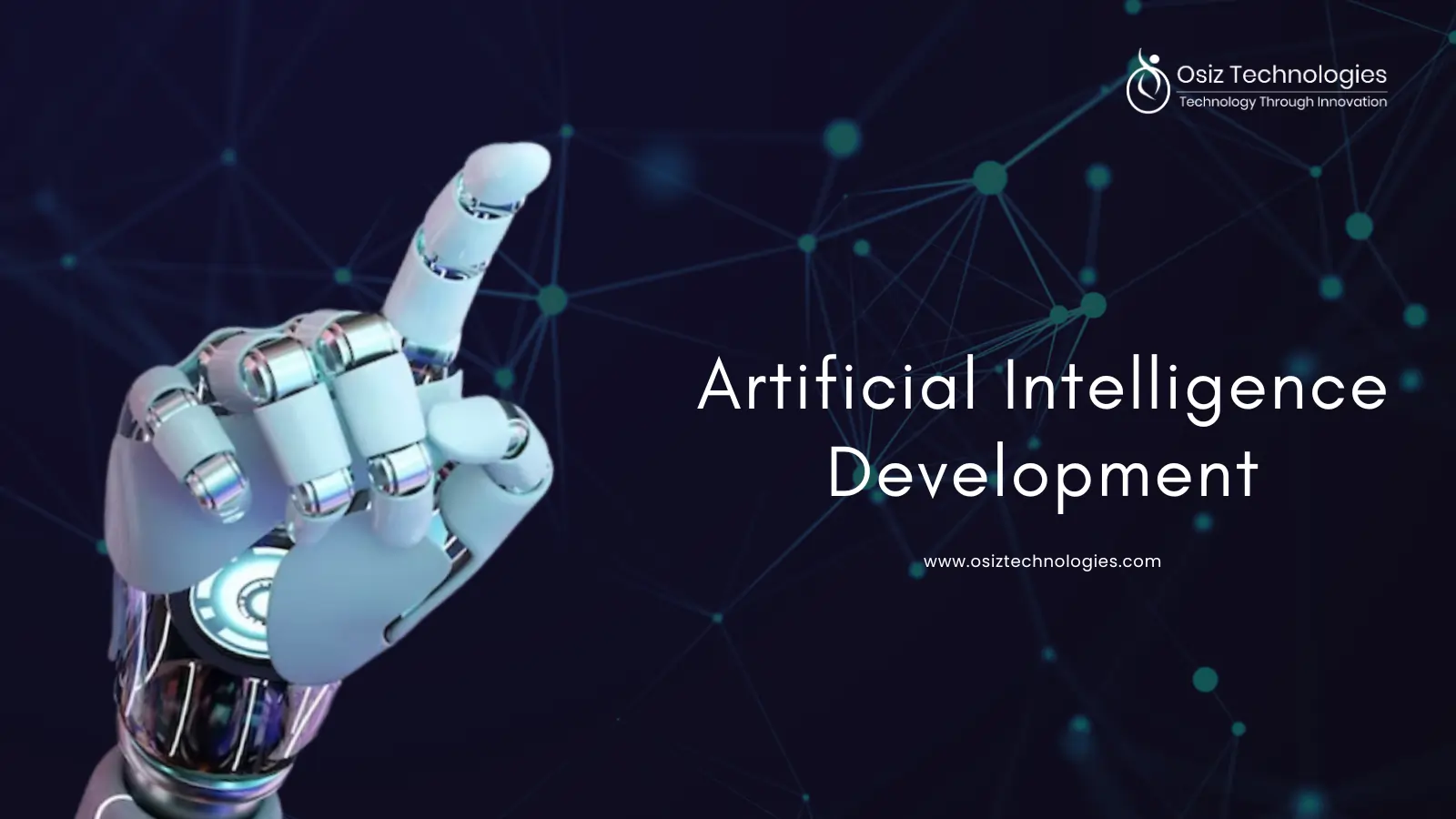AI Meets FMCG: A New Era
AI is transforming the FMCG industry through the ability of brands to learn consumer behavior, optimize supply chain efficiency, and make the most out of marketing practices. Through the ability to conduct quick analysis of large datasets, AI enables quicker decision-making and lowers costs while delivering more customized customer experiences.
FMCG
The FMCG refers to the Fast-Moving Consumer Goods. They are those consumer goods such as food, soft drinks or other products that people use on a daily basis and buy for their everyday lives (i.e: chocolate, soft drink, milk, cheese etc) Such products move fast at low prices and are in demand every time because people need them every day.
Why AI Matters in FMCG?
The application of AI in the FMCG industry is important as it allows business to take place at a faster and more efficient pace. Based on consumer behavior, it can predict demand for products and streamline supply chain activities. Wastage is hence minimized, product availability is enhanced, and experiences are made personalized. AI gives brands a chance to outdo competitors and fulfill customers' requirements in the new FMCG business.
It assists brands to choose market trends and opportunities, and then develop products ready to excel. Chatbots and other AI tools increase customer satisfaction by giving instant support. AI assists with quality control and maintenance forecasting by ensuring the product keeps coming out better than anticipated and preventing expense breaks. AI assists FMCG companies in making processes efficient, cutting costs, and gaining a competitive edge over competitors in fluctuating markets.
Transformative AI Technologies Impacting FMCG
- Machine Learning (ML) - Used in predicting market demand and customer segmentation when dealing with vast amounts of data and sales patterns.
- Natural Language Processing (NLP) - Allows the use of chatbots and virtual assistants, as well as monitoring customers' feedback, reviews, and sentiments on social media.
- Computer Vision - Used to authenticate quality, automate packaging, and even place products on supermarket shelves.
- Predictive Analytics - Tracks past and real-time data to identify trends, set optimal price schemes, and schedule promotions or new product releases
- Robotic Process Automation (RPA) - Boosts efficiency through automation of day-to-day work of data input, sending bills, and updating stock levels
- Recommendation Systems - Makes suggestions to customers of products similar to those already bought by the customer
- Speech Recognition - Invites voice-assisted customer care gadgets and intelligent personal assistant systems for improved customer engagement
Factory to Shelf: How AI Is Driving FMCG Growth
- Rapid Shifts in Customer Preferences - Artificial Intelligence Application enables Fast-Moving Consumer Goods companies to immediately analyze and track customer preferences via the processing of real-time data.
- Cost Pressures and Improved Efficiency - Predictive analytics and automation improve efficiency, waste less, and reduce manufacturing and logistics costs.
- Personalization at Scale - AI adoption enables brands to deliver one-to-one experiences and product recommendations across digital and store touchpoints.
- Supply Chain Disruptions and Volatility - By demand forecasting, inventory optimization, and reduction of supply chain disruptions, AI builds resilience.
- Competitive Pressure and Saturation in the Market - AI provides a strategic advantage to companies through rapid innovation, rapid go-to-market, and fact-based decision-making.
- Data Explosion on Multiple Channels - FMCG companies are leveraging AI to draw insights from massive amounts of data from social media and e-commerce platforms, and sensors.
- E-commerce and Digital Retail Growth - As online buying volumes surge, AI drives personalized purchasing, smart pricing, and virtual shelf management.
AI in Action: Real Impact in the FMCG Space
Demand Forecasting
- Use Case: Predict future demand for clothing items to prevent stocks running out or overproduction.
- Real-World Example: Unilever leverages AI to scan weather forecasting, social trends, and sales to refine its forecast in various geographies.
Personalized Marketing
- Use Case: Provide personalized promotions and product offers based on the behavior of the customers.
- Real-World Example: Coca-Cola employs AI driven data systems to personalize content and promotions in real time to various customers.
Product Development
- Use Case: Use the strategy of pattern recognition and understanding the wishes of the customers to develop new products.
- Real-World Example: Nestlé's artificial intelligence-driven product development system scans social media sites and web feedback to create new flavors and improve existing products.
Supply Chain Improvement
- Use Case: Predict delay, route planning, and inventory management for enhanced logistics.
- Real-World Example: Procter & Gamble (P&G) applies AI to anticipate transport needs and coordinate delivery timing in an effort to reduce costs.
Customer Service Automation
- Use Case: Offer real-time and autonomous assistance through the use of chatbots and virtual assistants.
- Real-World Example: L'Oréal uses AI chatbots to aid customers in product choice, providing beauty advice and order tracking.
Implementing AI in FMCG: Where to Start
- Identify Business Challenges - Start by identifying the most important challenges that can be solved through AI, such as demand forecasting, supply chain breakdown, or customer attrition. Focus on those areas that will be of greatest importance.
- Construct or Obtain Quality Data - AI needs accurate, logical, and relevant data. Focus on data collection, such as customers' sales and analytics, logistics and marketing campaigns.
- Collaborate with AI Specialists or Platforms - Partner with AI solution providers, tech consultants, or retail and FMCG industry-serve platforms for speedier deployments.
- Invest in Tools and Infrastructure - Utilize cloud infrastructure (e.g: AWS, Azure, Google Cloud) and AI tools (such as TensorFlow, DataRobot, Salesforce Einstein) to train and improve existing models.
- Monitor, Measure, and Scale - Ensure KPIs are used to measure ROI. Once successful, implement it across other business verticals with ongoing improvement in the AI models.
Looking Ahead: Emerging Trends
The future for AI in FMCG holds vast potential for exponential growth and increased penetration across the value chain. As technology evolves, AI will facilitate hyper-personalized retailing, real-time demand sensing, autonomous supply chains, and intelligent product development. Firms will be relying on AI to drive sustainability, reduce waste, and react in real time to changing consumer fashions. With the advent of generative AI, FMCG companies can also revolutionize their content production, packaging innovation, and consumer engagement. In the next two or three years, AI will not just supplement FMCG operations—it will drive the way such companies compete, change, and expand in an increasingly rapid, digital-first economy.
Listen To The Article
Recent Blogs

X-Mas 30%
Offer











